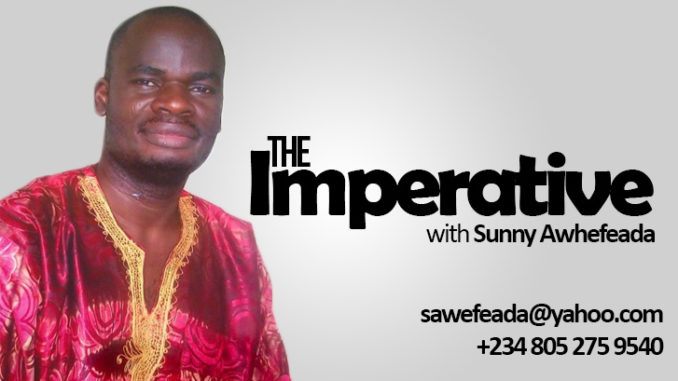
This week, precisely 15th January, is Nigerian Armed Forces Remembrance Day. The date defines two epochal events in Nigeria. The first being the nation’s first military coup which took place on the 15th of January 1966, while the second is the armistice which ended the Nigerian Civil War on the 15th of January 1970. Both events, the coup and the Civil War, are inextricably woven as cause and effect and they continue to haunt us as a people and a nation many years after. I dedicate this piece to the rank and file of the Nigerian Armed Forces who fought in that unfortunate and avoidable Civil War and their successors who continue to sacrifice and pay the supreme price to keep Nigeria united. Nigerian soldiers, by these I mean the rank and file, are gallant, resourceful and remarkably patriotic.
The Nigerian Armed Forces was almost anonymous before 1966. But for the deployment of the Army to the United Nations Peace Keeping Force in Congo in 1962 and the Tiv area to quell the riots of 1964, soldiering was largely sinecure in Nigeria. However, this cocoon was ruptured in the tragic night of 15th January 1966 when soldiers led by five majors struck at the heart of the Republic and overthrew the civilian government in what remains Nigeria’s bloodiest coup. Feelings that the coup was inspired by ethnic considerations provoked a counter coup by soldiers from another ethic stock. Tension mounted and in no time the nation cascaded on the bloody path of war.
The coup, the counter coup and the war took their toll on Nigeria. The Civil War which was fought between the defunct Eastern Region (Republic of Biafra) and Nigeria decimated the Nigerian Army. The number of soldiers who died while fighting on both sides remains unaccounted for. The carnages on the Niger Bridge and at Abagana Junction symbolize the destruction wrought by war. By the time Biafra met her waterloo in 1970, too many soldiers had lost limbs and lives. The war was fought by the ordinary soldiers also called the rank and file. The officer corps pride itself on being educated in military academies and functioned as commanders who designed and executed strategies that failed to win the war hence a conflict that should not have lasted for more than a few months stretched on for thirty months. It was the rank and file that fought and died. Many of the officers, afraid of dying, fought from the rear with the exception of Benjamin Adekunle and a few others.
After the Civil War some brass hats, who fidgeted at the sound of mortar, wrote romantic memoirs of bravado detailing how they fought and won the war. The memoirs are peopled by officers and their petty preoccupation. The ordinary soldiers who fought and died to win the war morphed into the phenomenon of the un-known soldier and found no place on the pages of the purple narratives. Olusegun Obasanjo’s My Command best typifies the fraud that the civil war memoirs really are. The narratives are a concatenation of tall tales according to the subject’s tendency to narcissism. Hence none of the accounts added up and the resultant counter-narratives by erstwhile officer colleagues struggling to correct inaccuracies as found in Godwin Alabi Isama’s The Tragedy of Victory..
Festus Iyayi’s award winning novel, Heroes (1986), is a compelling rebuttal of Obasanjo’s My Command and other narratives of similar hue by generals who shielded themselves with the rank and file during the war. Iyayi’s novel, although a work of fiction, ironically gives a factual account of the fate of the soldiers during the war. The soldiers did the fighting while the generals took the glory. Kolawole and Kesh Kesh represent the fighting soldiers while the journalist Osime Iyere becomes their mouthpiece. While the soldiers fight and die, the officers hibernated in the mess carousing and cavorting; drinking beer and pepper soup as Alozie Ogugbuaja alleged in 1986. It was for this reason that Iyayi described the soldiers as heroes from which the novel derived its title. The novel recounts the wedding between war time head of state, Yakubu Gowon and Victoria at the very moment when about two thousand soldiers were dying on the Niger bridge. The giddy commander had promised to make the fall of Onitsha a wedding gift to the groom and bride!
After the Civil War the soldiers became canon fodders in coups from which they benefitted nothing while the officers emerged as big bellied billionaires. Babangida and later Abacha also sent them to their death in Liberia and Sierra Leone through ECOMOG in the 1990s. As I write Nigerian soldiers are battling the Boko Haram insurgency in the North East. Many of those paying the supreme price are the other ranks with the exception of Lt. Col. Abu Ali and a few other officers. In the last five months the tables seemed to be turned against our soldiers. The Matele attack, the killing of thirteen soldiers and an officer, the death of five air force men and other tragic loss account for the travails and heroism of the rank and file. I salute them.
As these brave soldiers die they leave behind widows and children that eventually suffer acute deprivation. During the Armed Forces Remembrance Day, the president and other officials of state dressed resplendently, took salutes, laid wreaths, made speeches, but will not spare a genuine thought for our soldiers, our true heroes and the weeping widows and helpless children the dead left behind. The Boko Hram insurgency, like the Civil War, has become an avenue for making money by brass hats and politicians who would want to prolong the crises for self enrichment without minding the decimation of our soldiers. In the end only Buhari and Buratai and their ilk will be remembered and not the ordinary soldiers. But Iyayi’s Heroes will remain as a testament for our soldiers, our heroes. I salute them.
END

Be the first to comment